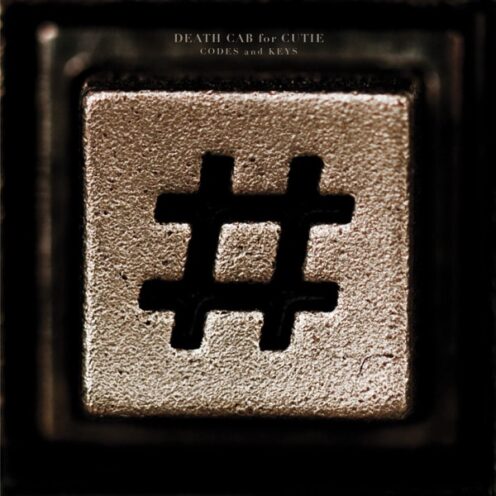
It has been just over three years since the release Death Cab For Cutie’s highly experimental Narrow Stairs. Differing from the groundbreaking Transatlanticism and haunting Plans, Narrow Stairs had a more raw feel to it – more electric guitars, distortion, and heavier instrumentation. That is not to say that it did not feature the intricate nature of Death Cab’s previous efforts, as tracks such as “Talking Bird” and “The Ice Is Getting Thinner” were poignant and mysterious cuts. In this way, the experimentation of Narrow Stairs made it a record that took time to resonate and fully appreciate – it was a record that got better with time.
However, while recording the highly anticipated follow-up record, the perfectly titled Codes and Keys, Death Cab explained that the record would be a departure from Narrow Stairs, equipped with more keyboards and less guitars. Sure enough, that’s exactly the case. What results from this different approach is a record of true beauty, encompassing every aspect of Death Cab For Cutie’s discography into one definitive record. It’s the haunting keyboards, meek vocals, and eerie fuzzy distortion echoed throughout Codes and Keysthat generate a record that pushes the limits of their sound to the peak.
In fact, it’s the lack thereof of the heavy instrumentation used throughout the majority of Narrow Stairs that allows an unheard depth and intricacy to surface here, for behind all of the effects and grungy instrumentation, vocalist Ben Gibbard reaches his greatest potential. The beautiful piano melodies, drumming, and vocal performance make Codes and Keys a full band effort – and at that, possibly the best effort by Death Cab For Cutie to date.
Singing timidly as the record begins, Gibbard introduces “Home Is A Fire” with his softest singing before Chris Walla’s piano correlates beautifully with Gibbard’s voice, creating what is arguably the most controlled piece of music on the record. Clearly, the obscure drumming of Jason McGeer and well-placed piano pieces add an atmospheric depth to Codes and Keys. The following title track highlights the beauty of the combination, as Gibbard displays one of his best vocal performances over beautiful piano and soft drumming.
Sweeping effects and instrumental complexity propel “Some Boys” as Gibbard sings in rhymes over the intricate instrumentation on this musically multifaceted highlight. The stunning single “You Are a Tourist” seems to get better with every listen, with the guitars complimenting the top-notch dazzling performance. However, the record is not all made up of crafty instrumentation and stunning effects, as the simplicity of “Unobstructed Views” reminisces the Plans-era Death Cab we all know and love. After the lingering piano intro, Gibbard’s singing of “There’s no one in the sky / just our love / one obstructed view / no perfect truth / just our love” breaks the deafening silence, sending shivers down the listener’s back on what is arguably the most hypnotic, truly chilling track in all of Death Cab’s discography.
What separates Codes and Keys from the rest of Death Cab’s praised discography is the fact that it is the most full band effort they’ve crafted, with each musician adding to the full effort to of the band. In this way, they’re able to meld every aspect of their previous work into one cohesive, stunning record – an album that portrays the true growth of Death Cab For Cutie’s legacy of the past ten plus years. The fuzzy “Monday Morning” expresses just this, as Gibbard’s soaring voice is backed by the distorted instrumentation of the band, proving the musicianship heard throughout this emotional record.
As the record comes through a close, the diversity of the final three tracks express the genuine creativity of the record. “Under the Sycamore” could easily fit on Plans, while “St. Peter’s Cathedral,” a track stripped down to the core, channels the sound of “Talking Bird” off of Narrow Stairs. The final “Stay Young, Go Dancing” is classic Death Cab from start to finish: an acoustic guitar, Gibbard’s picturesque lyrical prowess, and a sing-along-inciting vocal performance. As the record comes to a close, it’s impossible not to note the true creativity exerted throughout the entirety of Codes and Keys. From beginning to end, regardless of favoritism or nostalgia held in fans’ hearts for their other records, this is far and beyond Death Cab’s most creative, cohesive, controlled record, resulting in what could arguably eventually be labeled as their paramount, preeminent record.
 You Are a Tourist
You Are a Tourist